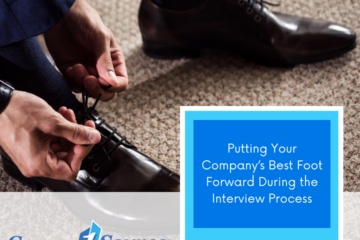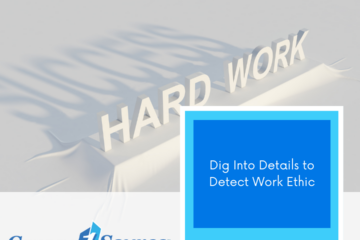It’s said that perception is everything, and during the interview process, it’s even more so. The interview process gives candidates a peek into the inner workings of your organization and what it might be like to work for your company, so you want to make sure that the process represents the organization well.
According to Scott Wedel, Chief Operating Officer, Career1Source, the worst thing that can happen is to have an interview process that’s unclear, disorganized, or requires lots of changes.
“It’s OK to have an extensive interview process, but the key is being clear with candidates on what the process looks like and what they should expect,” Wedel says. “If the process has lots of changes, starts and stops, and no clear expectations, it leaves the candidates with concerns that will ultimately show up when the candidate either withdraws from the process or increases the amount of compensation they request because they have more doubt about the organization and opportunity.”
Two-Way Street
During an interview process, not only is the company trying to find out as much as possible about the candidate, but the candidate is also judging the company and trying to learn about the company culture and ways of working.
For example, if an organization is seeking a candidate who is an achiever, highly analytical, and detail-oriented—how will that candidate feel if the interview process has multiple surprises?
“You may be interviewing the exact candidate you’re looking for, but the company is stubbing its toes with how clunky the interview process is,” Wedel says. “Candidates won’t tell you that; they’ll just withdraw from the process altogether.”
Hiring Isn’t Rocket Science
What’s the best way to overcome this challenge? Wedel says that organizations must have alignment before the interview process starts—regarding the number of interviews, who is involved in the hiring process, and clear communication and expectations about the interview process with the candidate. And most importantly, treat candidates how you would want to be treated during an interview process.
Wedel also suggests that organizations have one point person who’s responsible for ensuring that the entire hiring process goes smoothly.
“In the candidate’s eyes, the interview process is a representation of how the company runs,” Wedel says. “It’s not just the words—they’re observing how it works. Sometimes, the candidate’s perceptions may not be accurate, but if there’s enough of a negative, the company will end up not getting their top choice candidates.”
In this challenging economy, candidates are still in the driver’s seat, so organizations have to analyze their interview processes and make sure they are presenting themselves in the best light.
“It’s about showing the candidate that you value them as a person and that the organization is well run” Wedel says.



